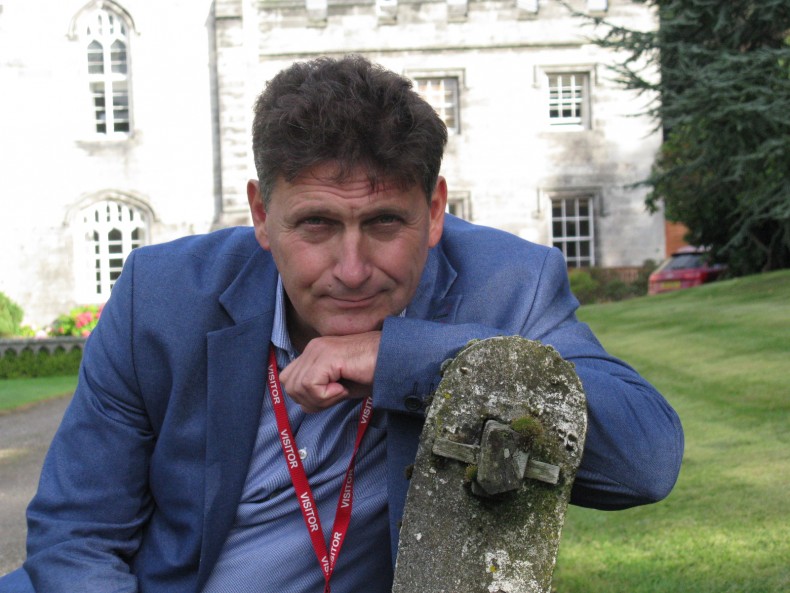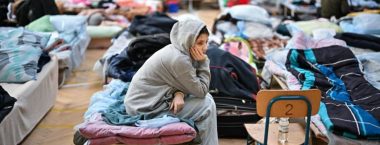
Action Plan for Implementing the Strategy for the Deoccupation and Reintegration of Crimea. What has changed?
On April 4, 2023, the Cabinet of Ministers of Ukraine (CMU) approved Order No. 288-r,...
03 May 2023
Head of the Analytical Department of UHHRU Oleg Martynenko sums up thoughts about difficulties on the way of implementing aspects of transitional justice in times of war in Ukraine. In November 2017, a working group, headed by Ombudsman, has started to draft a bill on the implementation of transitional justice in Ukraine. Discussions with experts and interested organizations, kept during this exciting process, inspired the author for the following reflections.
After the discovery of penicillin’s healing properties, its mass use in hospitals during World War II helped save thousands of lives. And neither patients nor doctors cared where that penicillin came from – Great Britain, United States or USSR. Simply because the antibiotic was doing its job splendidly.
Today, when our society’s organism not only suffers from chronic corruption but is also afflicted by an armed conflict, UN and EU institutions are thoughtfully and gently reminding us about one such antibiotic. It has a long history of national applications and consequently a rich experience of positive effects as well as certain warnings. The name of this “antibiotic” is justice of transitional period, or transitional justice.

The four main aspects of transitional justice are codified in UN resolutions and EU documents and are described in detail in dozens of studies – prosecution for gross violations of human rights (armed conflicts, war, genocide, dictatorship, etc.); reparations for victims of such violations; full disclosure of truth regarding the reasons, progress and consequences of widespread violations; reforms that prevent similar violations in a country. Ideally, coordinated realization of these four aspects should lead to reconciliation in society or bring social tensions down to safe levels.
Despite rather simple and universal definitions, countries where components of transitional justice are applied react differently to them. This is also true for our national expert community dealing with the implementation of transitional justice in Ukraine. Recent working meetings and discussions revealed a number of concerns and phobias that appear out of place coming from experts. So, what’s this all about?
For instance, we recommend the fullest possible disclosure of truth about the reasons and progress of the conflict to stop information wars and political speculations in this regard. To this, some experts say we should be careful, since the whole truth could lead to new social conflicts. Therefore, according to them, a more appropriate course of action would be to tell just enough truth not to rock the boat. Yet it is unclear what’s there to be afraid of, with Ukraine already suffering from war, inflation, abuse of power, radicalism and lynching. And will it be the truth that triggers new conflicts, or all those calamities listed above? There is no answer.
Or, we suggest ways to provide compensation (immaterial, material, psychological) to victims of the armed conflict. And experts, while agreeing that material compensation is necessary even despite budget issues, at the same time shy away from speaking about a rather limited and low cost assortment of benefits for the victims. They believe it would greatly increase the number of people after these benefits. The fact that special commissions will decide whether to grant the benefits on a case-by-case basis does not lessen their fear of a potential frenzy. After all, the announcement that the state provides material compensation will also lead to a large number of interested people and unhealthy excitement. So why should we be fine with this yet wary of benefits? There is no clear answer.
Other unsubstantiated fears are voiced by experts that suggest avoiding the words “victims of the armed conflict” and “transitional justice” for the time being. Why? According to them, the term “victim” might somehow offend those affected by the conflict. As for transitional justice, it’s better to discuss it after the conflict ends, which means who knows when. This fear of terms originating from international law is also surprising.
The greatest unease, however, is caused by rather cautious ideas of transitional justice on accountability of guilty parties. While international practice recommends limiting this to war criminals and those responsible for gross human rights violations, it does not satisfy some experts, who suggest bringing criminal charges against a large number of people currently working in the bodies of occupation authorities of the Autonomous Republic of Crimea and so-called DPR/LPR. Why is it so unsatisfactory? As they claim, supporters of the “Russian World” remaining at large after the conflict ends will hinder reintegration and reconciliation and will attempt to form opposition. But when all the 35 thousand militants and over 200 thousand public servants from DPR/LPR are released from prison, will they not be a hindrance to reintegration? Therefore, UN’s approach seems best here – to bring criminal charges against war criminals first, while using lustration and administrative or civil liability against other categories of perpetrators. This issue also lacks proper justification.
Finally, even experts occasionally express concerns that the most useful experience for Ukraine will be that of European countries, since the progress and results of transitional justice implemented in Argentina, the Congo or East Timor might “not be relevant”. In response to these concerns, it would be apropos to refer to the first lines of this text and ask: “Why should it be European-made penicillin, instead of the one from the U.S. or Asia, that will help us recover? It seems we are not going to get a definitive answer though.
If we were to sum up the given examples of phobias in the expert community, we can safely assume the following. We must carefully consider and evaluate everything before adopting the experience of other countries. We must be discerning in regards to the professional qualities of invited international experts and be very critical toward advices that lack proper substantiation and transparent calculations. We should, however, borrow from the world’s experience the principles and approaches that have already demonstrated their effectiveness. This will help us save time, which is a luxury in times of war.
Text by Oleg Martynenko, Head of the Analytical Department of UHHRU
If you find an error on our site, please select the incorrect text and press ctrl-enter.

On April 4, 2023, the Cabinet of Ministers of Ukraine (CMU) approved Order No. 288-r,...
03 May 2023

Since the beginning of the full-scale Russian invasion of Ukraine, about 150,000 civilians who fled...
17 October 2022
Within the framework of Crimea Academic Forum – 2022, Taras Shevchenko National University of Kyiv...
15 September 2022
Taras Shevchenko National University of Kyiv and its student community in cooperation with leading Ukrainian...
13 September 2022